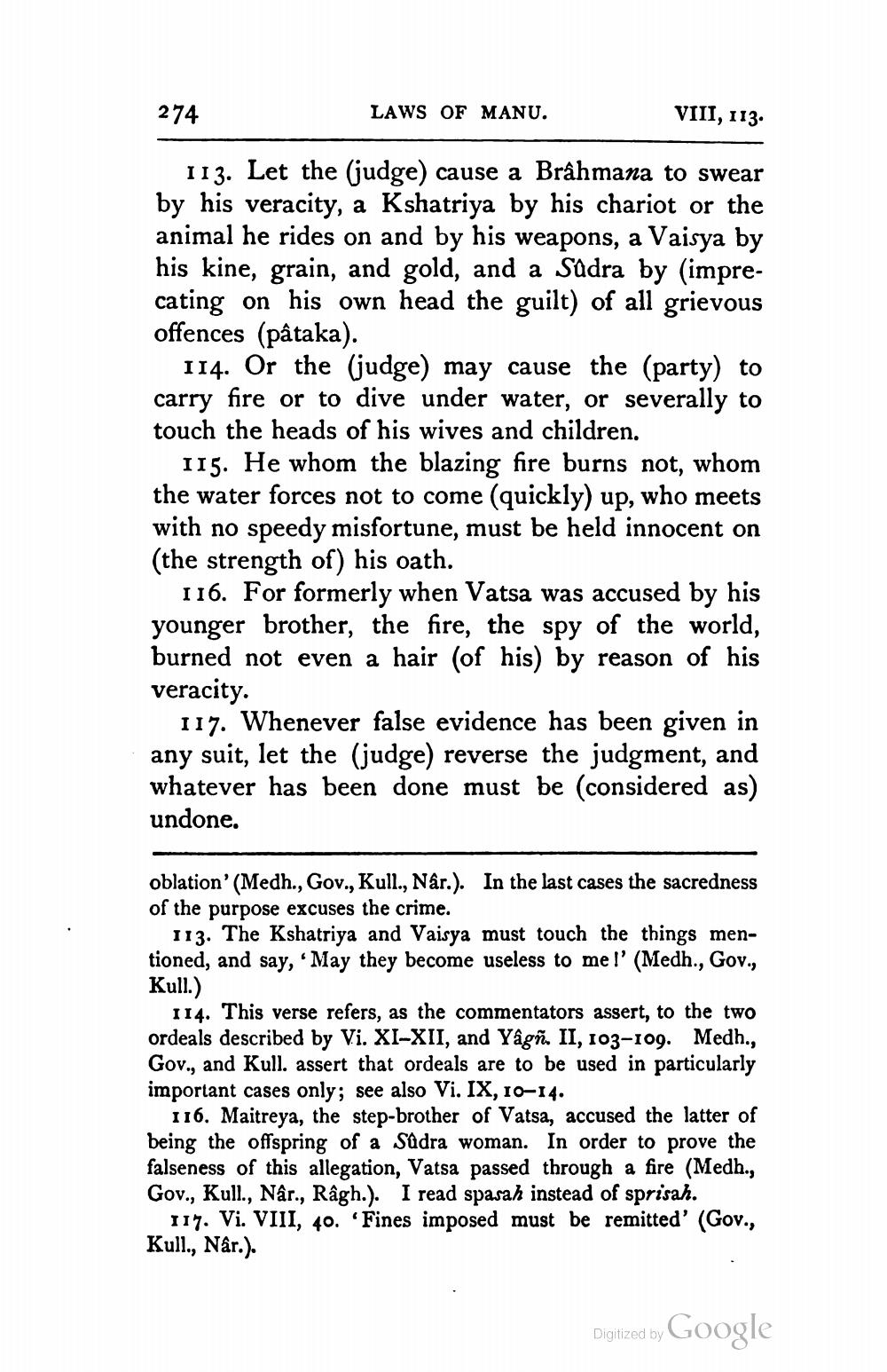________________
274
LAWS OF MANU.
VIII, 113
113. Let the (judge) cause a Brâhmana to swear by his veracity, a Kshatriya by his chariot or the animal he rides on and by his weapons, a Vaisya by his kine, grain, and gold, and a Sudra by (imprecating on his own head the guilt) of all grievous offences (pâtaka).
114. Or the (judge) may cause the (party) to carry fire or to dive under water, or severally to touch the heads of his wives and children.
115. He whom the blazing fire burns not, whom the water forces not to come (quickly) up, who meets with no speedy misfortune, must be held innocent on (the strength of) his oath.
116. For formerly when Vatsa was accused by his younger brother, the fire, the spy of the world, burned not even a hair (of his) by reason of his veracity.
117. Whenever false evidence has been given in any suit, let the (judge) reverse the judgment, and whatever has been done must be considered as) undone.
oblation’ (Medh., Gov., Kull., Nár.). In the last cases the sacredness of the purpose excuses the crime.
113. The Kshatriya and Vaisya must touch the things mentioned, and say, 'May they become useless to me!' (Medh., Gov., Kull.)
114. This verse refers, as the commentators assert, to the two ordeals described by Vi. XI-XII, and Yâgñ. II, 103-109. Medh., Gov., and Kull. assert that ordeals are to be used in particularly important cases only; see also Vi. IX, 10-14.
116. Maitreya, the step-brother of Vatsa, accused the latter of being the offspring of a Sadra woman. In order to prove the falseness of this allegation, Vatsa passed through a fire (Medh., Gov., Kull., Nár., Râgh.). I read spasah instead of sprisah.
117. Vi. VIII, 40. 'Fines imposed must be remitted' (Gov., Kull., Nár.).
Digitized by
Digitized by Google




